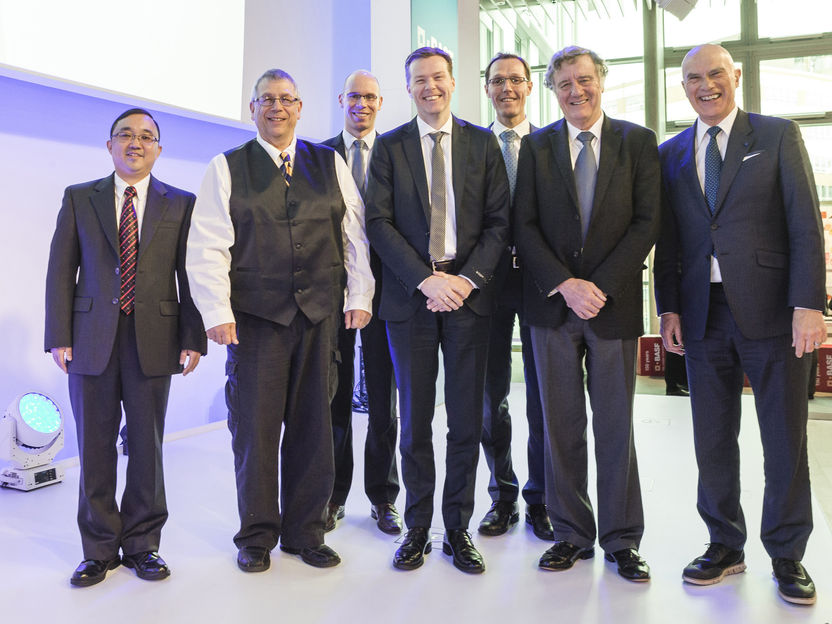Four research groups each receive prize money of €100,000 for innovative battery concepts
BASF announces winners of the open innovation contest on energy storage
Advertisement
The winners of the BASF Energy Contest were announced at the “Creator SpaceTM Summit” in Ludwigshafen. From 122 applications submitted on the online platform NineSights, a jury of BASF experts and external specialists chose the four best proposals which will be funded with €100.000 each. The winning concepts were nominated by the professors Patrik Johansson, Department of Applied Physics at the Chalmers University of Technology, Sweden, Paul K. Wright and James W. Evans, University of California, Berkeley, Mike Stuart Licht, Department of Chemistry at George Washington University und Xiangwu Zhang, Department of Textile Engineering at North Carolina State University.

Xiangwu Zhang, Prof. Stuart Licht, Dr. Steffen Waglöhner, Prof. Patrik Johansson, Dr. Dominique Moulin, Prof. James Evans, Prof. Paul Wright (from left to right)
BASF SE
The Open Innovation Contest, initiated by BASF at the beginning of February, aims to find ideas for the storage of energy from renewable energy sources. Sustainable technologies should make it possible to store power from the grid and feed power back into it. Together with scientists, inventors and companies, BASF is looking for efficient solutions for the long-term storage of electricity, which are financially viable, for example through lower investment costs. Innovative chemistry was to play a central role in the submitted proposals.
Professor Stuart Licht from George Washington University studies in his project a new type of rechargeable batteries: the molten air battery. It uses a molten salt electrolyte at elevated temperature. The research group of Professors Paul Wright and James Evans from the University of California, Berkeley, describes a novel rechargeable zinc battery and has already founded a start-up company for its realization. Professor Patrik Johansson from the Chalmers University suggests the usage of abundant aluminum for a sustainable battery technology that directly addresses the need of low-cost concepts. And the research group of Professor Xiangwu Zhang from North Carolina State University presents the concept of high-performance sodium-ion batteries that applies special electrode preparation methods.
Other news from the department science
Most read news
More news from our other portals
See the theme worlds for related content
Topic World Battery Technology
The topic world Battery Technology combines relevant knowledge in a unique way. Here you will find everything about suppliers and their products, webinars, white papers, catalogs and brochures.

Topic World Battery Technology
The topic world Battery Technology combines relevant knowledge in a unique way. Here you will find everything about suppliers and their products, webinars, white papers, catalogs and brochures.































































